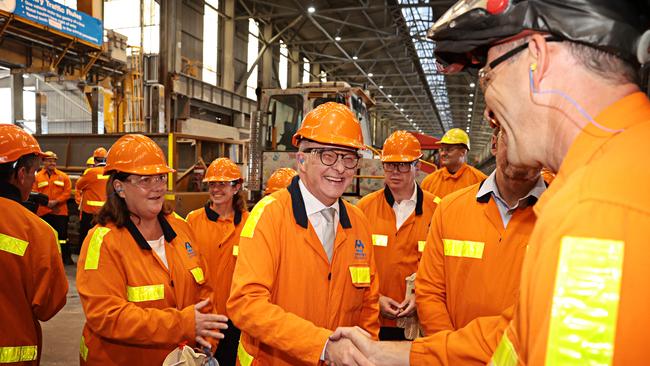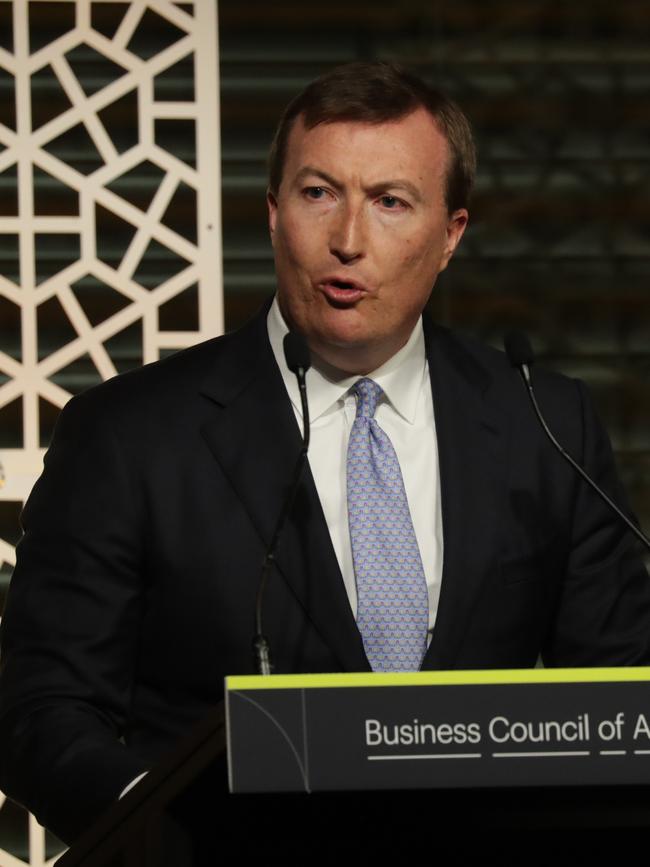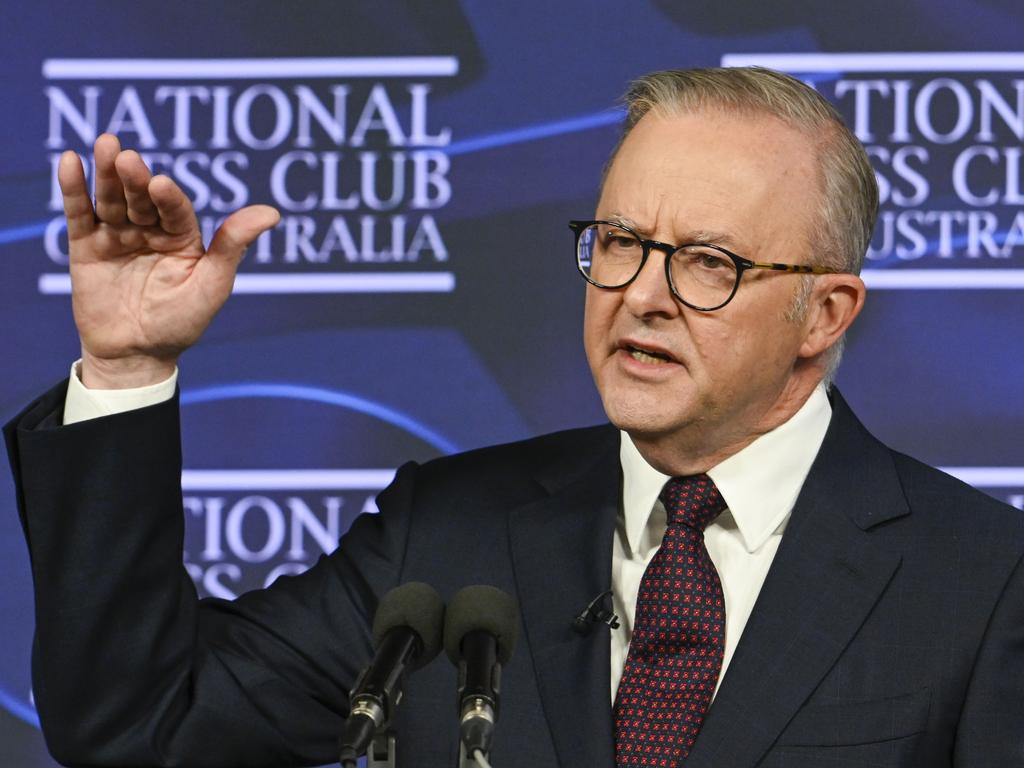Big business pushes for employer apprentice incentives
Australia’s biggest employers want the government to provide cash incentives of up to $14,000 an apprentice for businesses to train and retain workers and fix the skills crisis.

Australia’s biggest employers want the federal government to provide cash incentives of up to $14,000 an apprentice over four years for businesses to train and retain workers under a pre-election plan to fix the skills crisis.
After Anthony Albanese last week announced $10,000 cash incentive payments for construction tradies, the Business Council of Australia on Wednesday will release its election skills blueprint headlined by an increased wage subsidy and new grant funding for employers.
Under the BCA proposal, which has been with Employment Minister Murray Watt since last year, baseline support of up to $4000 an apprentice a year would be paid to employers for the first two years of an apprenticeship and up to $3000 for a third and fourth year.
The BCA is pushing for a $40m fund over four years to incentivise larger businesses to expand successful training programs and extra incentives – up to double the baseline amount – for small and medium-sized businesses boasting strong completion and diversity rates.
The Australian understands the Albanese government, which has committed to extensive consultation with stakeholders following the release of the Strategic Review of the Australian Apprenticeship Incentive System, believes the BCA proposal could cost up to $6.5bn.
Government estimates show that under the plan, incentive payments to small and medium businesses would increase by 460 per cent, and by 180 per cent for larger employers.
BCA chief executive Bran Black said “every time employer incentives have been reduced, there has been a corresponding drop in apprentice numbers and every increase in employer incentives delivered an uptick in apprentice commencements and completions”.

“This policy is productivity-enhancing and, importantly, it can be scaled up and down depending on budget capacity,” Mr Black said.
The BCA says big businesses have achieved success in training apprentices, boasting 90 per cent completion rates compared with the national average of about 50 per cent.
The business group says one-in-three occupations across the economy is reporting skills shortages, with the clean energy sector requiring an extra 30,000 electricians by 2030 to support the net zero transition. With Labor on track to fall short of its pledge to build 1.2 million new homes by mid-2029, the construction sector is facing a shortfall of up to 200,000 skilled workers.
Mr Black backed the recommendation of the government’s strategic review calling for “more support for business” and employer incentive schemes that recognised and rewarded success.
“Businesses tell me that existing employer incentives don’t reflect the true cost of training an apprentice, and that means we need a new approach to ensure businesses are supported to train more people,” Mr Black said.
“Businesses play vital roles in training the next generation of skilled workers; if employer incentives aren’t increased in amount and scope, we’ll see fewer employment opportunities offered, which will exacerbate our nationwide skills gaps.”
He said large businesses should gain access to a $40m grant pool to expand successful programs: “Taking on an apprentice is costly and carries a high financial risk for a business due to the resources required for training and the risk of poaching in later years, and so we believe more help is needed to reduce cost and risk.”
Mr Black also called for “greater focus on work-integrated learning in universities and non-trade VET courses, particularly in emerging sectors like digital and cyber”.
Skills and Training Minister Andrew Giles said the government was focused on “fixing the worst skills shortage in half a century – left by Peter Dutton and the former Liberal government”.
“That’s why Labor is making free TAFE permanent, and it’s why we’ll pay housing construction apprentices $10,000 to get on the tools,” he said.
Deputy Leader of the Opposition Sussan Ley said the Coalition would “have more to say in skills in the lead-up to the election, but the fact is Labor has made it harder than ever for businesses to put on apprentices or trainees”.
“If a business does not know if they are going to survive another week or month, how can we expect them … to put on an apprentice for 2-3 years?”





To join the conversation, please log in. Don't have an account? Register
Join the conversation, you are commenting as Logout